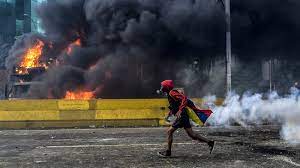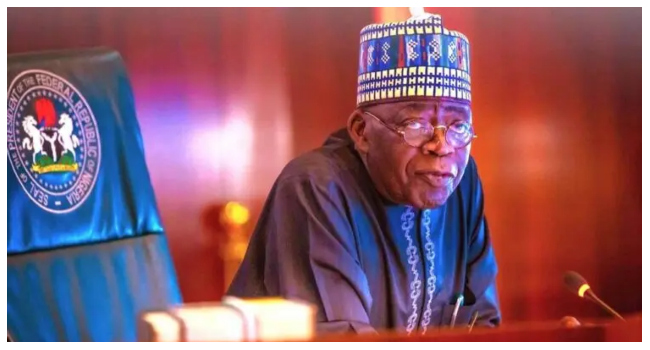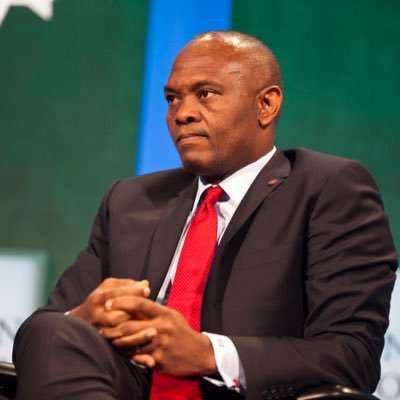Venezuela is on edge as new demonstrations are expected Tuesday, following violent clashes that left four people dead and dozens injured during protests against President Nicolas Maduro’s contentious claim of victory in the recent election.
On Monday, security forces fired tear gas and rubber bullets at protesters who alleged the election was stolen. Demonstrators filled the streets, chanting “Freedom, freedom!” and “This government is going to fall!” Many protesters tore down and burned campaign posters of Maduro, and at least two statues of the late Hugo Chavez, the socialist leader who appointed Maduro as his successor, were toppled.
Attorney General Tarek William Saab announced Tuesday that 749 “criminals” had been arrested during the protests. These individuals face charges ranging from resisting authority to terrorism in the most serious cases.
The opposition disputes the official results of Sunday’s election, which authorities claim Maduro won with 51.2% of the votes, compared to 44.2% for his opponent, Edmundo Gonzalez Urrutia. Opposition leader Maria Corina Machado, who was barred from running by Maduro-aligned courts and replaced by Urrutia, argued that voting records show Urrutia had a “mathematically irreversible” lead. According to the opposition’s count, Urrutia secured 6.27 million votes, while Maduro received only 2.75 million.
The Organization of American States (OAS) on Tuesday accused the Venezuelan government of “exceptional manipulation” of the election results in favor of Maduro. Monday’s protests, which resulted in 44 injuries, most of them from bullet wounds, also saw fatalities. The National Hospital Survey reported two deaths in Aragua state, one in Caracas, and the NGO Foro Penal confirmed another death in Yaracuy state.
Gonzalez Urrutia condemned the violence, calling on security forces to “stop the repression of peaceful demonstrations.” The Defense Ministry reported 23 wounded military personnel, while Defense Minister Vladimir Padrino declared the armed forces’ “absolute loyalty and unconditional support” for Maduro.
Opposition leader Machado has called for nationwide “popular assemblies” on Tuesday to advocate for a peaceful transition of power. Conversely, Maduro’s campaign manager Jorge Rodriguez urged supporters to join “large marches starting this Tuesday to celebrate the victory.”
Amid rising tensions, opposition figure Freddy Superlano was reportedly “kidnapped” by black-clad officials, according to his party, Voluntad Popular. The controversial election has faced widespread accusations of government fraud and political intimidation. The United Nations, United States, European Union, and several Latin American countries have called for a “transparent” electoral process, while allies such as China, Russia, and Cuba have congratulated Maduro on his victory.
In response to the disputed results, nine Latin American countries issued a joint statement demanding a “complete review of the results with the presence of independent electoral observers.” Peru recalled its ambassador, and Panama announced the suspension of relations with Venezuela. In retaliation, Caracas is withdrawing its diplomatic staff from Argentina, Chile, Costa Rica, Panama, Peru, the Dominican Republic, and Uruguay.
Independent polls had predicted Maduro’s defeat in Sunday’s vote. Since taking office in 2013, his tenure has been marred by U.S. sanctions and economic mismanagement, leading to an 80% drop in GDP and prompting over seven million Venezuelans to emigrate. Maduro, accused of authoritarianism and suppressing critics, warned of a “bloodbath” if he lost the election.
The election was part of a deal reached last year between the government and opposition, leading the U.S. to temporarily ease sanctions imposed after Maduro’s 2018 re-election, which was widely dismissed as fraudulent. However, sanctions were reinstated after Maduro failed to uphold the agreed conditions.
Despite having the world’s largest oil reserves, Venezuela’s production capacity has significantly diminished in recent years.






